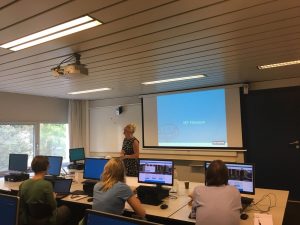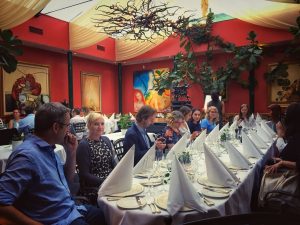2 September 2019, the first school day for many Belgian pupils, but also ‘back-to-school’ for some translation technology enthusiasts.
According to annual custom, KU Leuven organised the Translation Technology Summer School. For one week, Antwerp was the translation industry’s Valhalla with participants from all over the world: Azerbaijan, Belgium, Finland, France, Germany, Iraq, Ireland, Luxembourg, the Netherlands, Oman, Saudi Arabia, Serbia and Spain.
Most of them were translators, but there were also project managers, technical writers, teachers, students and language technology coordinators on the list of participants.
They came especially for keynotes and workshops dealing with all aspects and domains from the translation world, with a focus on the technological aspect: tools, usability, QA and revision, technical writing, machine translation and so on.
Attentive readers could also come across workshops by Nathalie De Sutter: ‘MT post-editing in practice for translators’, ‘Intro to MT post-editing for translators’ and ‘Implementation of MT in the translation workflow for PMs’.

Her session for project managers focused on how to integrate machine translation into existing workflows in combination with other translation tools, and how to calculate the return on investment. The emphasis of the workshop for translators was on post-editing to quickly ‘fix’ the problems that currently still exist in MT output in a targeted manner. An important aspect was also the objective evaluation of the time saved by post-editing. Therefore, during the workshop, the participants did a translation test ‘from scratch’ and one using MT to calculate their own time savings.
